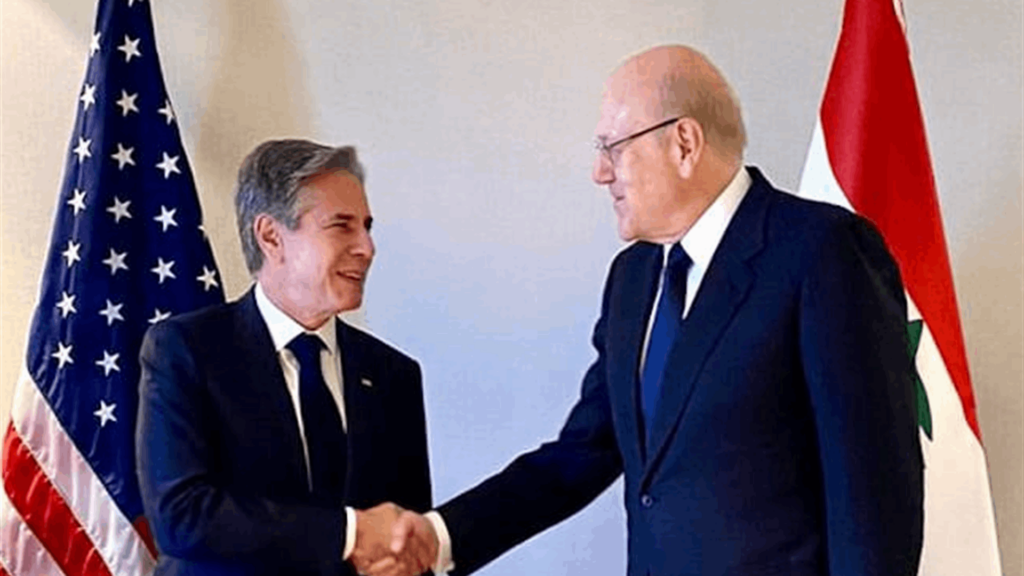Israel battled into the fifth week Saturday of its war to crush Hamas, showing no signs of letting up even as US Secretary of State Antony Blinken faced a rising tide of anger in meetings with Arab foreign ministers.
Blinken reaffirmed US support for “humanitarian pauses” in the fighting in Gaza to ensure desperate civilians get help a day after Israel’s hawkish Prime Minister Benjamin Netanyahu gave the idea short shrift.
Speaking at a news conference in Amman about sparing civilians and speeding up aid deliveries, the US top diplomat said: “The United States believes that all of these efforts will be facilitated by humanitarian pauses.”
Jordanian Foreign Minister Ayman Safadi called for all sides to work together to “stop a catastrophe that will haunt the region for generations”.
The Israeli army said its troops had launched an operation in southern Gaza overnight, after deadly strikes hit an ambulance convoy and a school-turned-refugee shelter in the besieged Palestinian enclave.
Israeli forces have encircled Gaza’s largest city, trying to crush Hamas in retaliation for October 7 raids into Israel that officials say killed around 1,400 people, mostly civilians.

Tthe Israeli military said it had come under attack several times from Hamas “tunnel shafts and military compounds” in northern Gaza and had killed many “terrorists” and destroyed three observation posts.
Hamas said it had hit an Israeli convoy with mortar fire.
Netanyahu ‘written off’
The health ministry in Gaza, which is run by Hamas, says more than 9,480 Gazans, mostly women and children, have been killed in Israeli strikes and the intensifying ground campaign.
The ministry said at least 12 people had been killed when Israel struck a United Nations school where thousands of displaced Palestinians were sheltering.
The fighting has provoked anti-Israeli protests around the world, and political opposition from key regional powers, including influential Turkey, which on Saturday recalled its ambassador from Israel.
Palestinian ally Turkey had been mending torn relations with Israel until last month’s start of the Israel-Hamas war.
But its tone hardened against both Israel and its Western supporters — particularly the United States — as the fighting escalated and the death toll among Palestinian civilians soared.
Turkish President Recep Tayyip Erdogan separately told reporters that he held Netanyahu personally responsible for the growing civilian death toll in the Gaza Strip.
“Netanyahu is no longer someone we can talk to. We have written him off,” Turkish media quoted Erdogan as saying, adding that Ankara could not completely cut off ties and hoped instead to help mediate an end to the war through its intelligence chief.
Blinken is due to make a two-day visit to Turkey from Sunday, during which he will “underscore the importance of protecting civilian lives in Israel and the Gaza Strip”, the US State Department said.
‘Targeted raid’
The Israeli military describes Gaza City as “the centre of the Hamas terror organisation” and says it is targeting militants, weapons stores, tunnel complexes and command centres.
Overnight, Israeli ground forces launched “a targeted raid” to map tunnels and clear explosive traps in southern Gaza, where it has struck before but rarely sent in troops, the military said.
“The troops encountered a terrorist cell exiting a tunnel shaft. In response, the troops fired shells toward the terrorists and killed them,” it said.
Israel says it has struck 12,000 targets across the Palestinian territory since October 7, one of the fiercest bombing campaigns in recent memory.
The army on Saturday sent text messages to Gazans saying the territory’s main north-south road would be open for three hours in the afternoon so people can evacuate.
A key focus of Blinken’s visit to Israel on Friday was to convince Netanyahu to enact “humanitarian pauses”.
Netanyahu said later, however, that he would not agree to a “temporary truce” with Hamas until the Islamist group releases more than 240 Israeli and foreign hostages it abducted during its October 7 attack.
Ambulance hit
In Gaza City, an Israeli strike on Friday hit an ambulance convoy near the territory’s largest hospital Al-Shifa, killing 15 people, according to the Palestinian Red Crescent and the Hamas-run health ministry.
Israel’s military said it had targeted an ambulance used by a “Hamas terrorist cell” and had “neutralised” those inside.

“We emphasise that this area in Gaza is a war zone. Civilians are repeatedly called upon to evacuate southward for their own safety,” the army said.
An AFP journalist saw multiple bodies beside the blood-splattered Palestinian Red Crescent vehicle.
The Red Crescent said a convoy of five vehicles had been destined for the Rafah border crossing with Egypt, when they were struck multiple times.
One vehicle had been transporting a 35-year-old woman with shrapnel wounds.
Hamas provided a list of wounded Palestinians for evacuation with one-third of the names those of Hamas members and fighters, the official said.
“That was just unacceptable to Egypt, to us, to Israel,” the official added.
Egypt’s health ministry said just 17 wounded Palestinians were evacuated for treatment in Egyptian hospitals Friday instead of the 28 originally planned because of the “events” at Al-Shifa.
Shuttle diplomacy
Blinken began the day in Amman by holding talks with Prime Minister and Foreign Minister Mohammed bin Abdulrahman al-Thani of Qatar, a mediator in the conflict.
He also had meetings scheduled with the foreign ministers of Jordan, Egypt, Saudi Arabia and the United Arab Emirates.
The talks come amid mounting Arab anger over the civilian death toll from war, and increasing fears that the conflict could spread.
Washington has deployed a powerful fleet to the eastern Mediterranean and hopes that it has deterred Hezbollah, the heavily armed Iranian-backed movement in Lebanon from a full scale attack on Israel, but border clashes continue.
The Israeli military said Saturday it had struck “two terrorist cells” and a Hezbollah post in response to attempted firing from Lebanon.
FRANCE24/AFP


Leave a Reply
You must be logged in to post a comment.